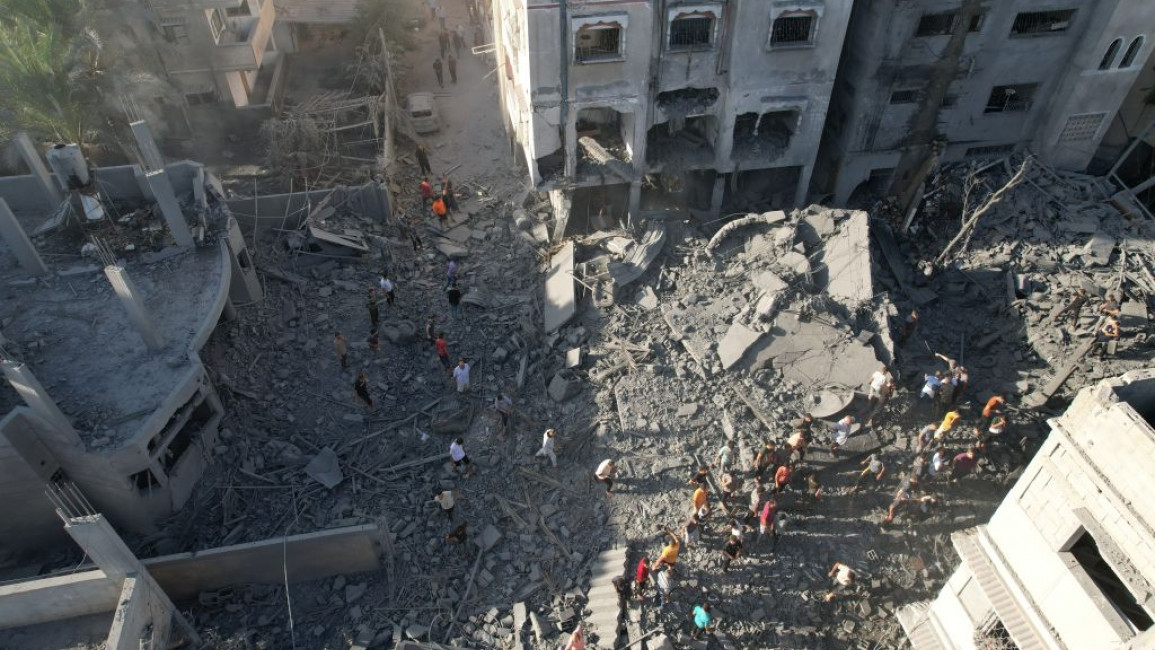WHO warns of 'worrying trends' in disease spread in Gaza
The Gaza Strip faces an increased risk of disease spreading due to Israeli air bombardments that have disrupted the health system, access to clean water, and caused people to crowd in shelters, the World Health Organization warned on Wednesday.
"As deaths and injuries in Gaza continue to rise due to intensified hostilities, intense overcrowding and disrupted health, water, and sanitation systems pose an added danger: the rapid spread of infectious diseases," WHO said.
"Some worrying trends are already emerging."
It said that the lack of fuel in the densely populated enclave had caused desalination plants to shut down, which increased the risk of bacterial infections like diarrhoea spreading.
While there have been extremely limited deliveries of food, water, and medicine to Gaza, Israel has refused to let fuel in, citing concerns about its possible diversion by Hamas despite calls from the United Nations and humanitarian aid groups.
WHO said that more than 33,551 cases of diarrhoea had been reported since mid-October, the bulk of which among children under five.
It said the number of children affected marked a significant increase compared to an average of 2,000 cases monthly in that age group throughout 2021 and 2022.
The lack of fuel has also disrupted the collection of solid waste, which WHO said created an "environment conducive to the rapid and widespread proliferation of insects, rodents that can carry and transit diseases".
It said that it was "almost impossible" for health facilities to maintain basic infection prevention measures, increasing the risk of infection caused by trauma, surgery and childbirth.
"Disrupted routine vaccination activities, as well as lack of medicines for treating communicable diseases, further increase the risk of accelerated disease spread," it warned.
(Reuters)

![A pro-Palestinian encampment at Columbia persists, despite recent arrests. [Brooke Anderson/The New Arab]](/sites/default/files/styles/image_212x120/public/2024-04/417084c8-3251-4705-8422-058fca1d5709.jpg?h=ddb1ad0c&itok=M1RtdyYz)

